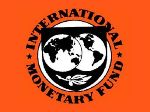IMF: Latin American budgets safe through 2009
 Washington - Latin America's governments will have no trouble financing their 2009 budgets despite the current credit crunch and global financial crisis, the International Monetary Fund (IMF) said Friday.
Washington - Latin America's governments will have no trouble financing their 2009 budgets despite the current credit crunch and global financial crisis, the International Monetary Fund (IMF) said Friday.
IMF specialists for the region explained that some governments already have enough funds to finance their budgets for next year, while those that do not will use part of their reserves.
"I do not see that this may create problems for governments in the short run," IMF director for Latin America Anoop Singh said of the credit crunch. "For most governments the short-run needs for financing are solved."
The situation is different for the region's private sector, Singh said, while noting that Latin America's firms do not depend on foreign capital as much as those in other regions.
In spite of that, Singh stuck by an offer made by IMF boss Dominique Strauss-Kahn. "We are ready to extend our assistance, including financial assistance, as far as it is necessary," Singh said.
According to the World Economic Outlook, Latin America is set to grow by 3.2 per cent in 2009. This is less than what was expected just a few months ago, but it is a lot better than prospects for the world's leading economies.
But Singh admitted that the IMF was expecting a steep drop in Latin America's growth, actually closer to zero, and he praised the safety mechanisms that have been put in place in the area in recent years.
The economist added that the governments in the region - with which he claimed to be in daily contact - are taking adequate steps to keep the crisis under control and are all committed to fighting the current problems.
However, Singh warned that there are still issues that need to be kept in check and, if necessary, actively combatted. He singled out inflation caused by high prices in commodities, which remain very high despite a recent drop.
Although the IMF is expecting a rise in inflation to reach double- digit figures in many countries, Singh said he is calm because all governments are aware of the fact that the rise in the price level should be fought.
"If there is anything I am impressed with it is how the region is absolutely determined to erase the history of high inflation and periodic crises," Singh said. "There are no differences across the region, be it Chile, Venezuela, Brazil or others. There is a clear intention to lower inflation. Some manage better and others less so, but nobody likes it."
With respect to other measures, Singh drew attention to the need to ensure an appropriate functioning in financial markets, particularly in guaranteeing their liquidity.
Further, as the World Bank did earlier, Singh called upon Latin American governments to take advantage of the fiscal leeway obtained in recent years to secure a robust safety net for low-income families, who could be the worst hit by the crisis in part because of reductions in remittances from those working abroad.
Singh also agreed with the World Bank that this may be a chance for Latin America to attract future foreign capital, for instance from China.
"There is available capital globally," Singh stressed.
"The question is what conditions are required" to attract it, he said.
Latin America would do well to attract it to invest in infrastructure, one of the region's weak spots, he said. (dpa)